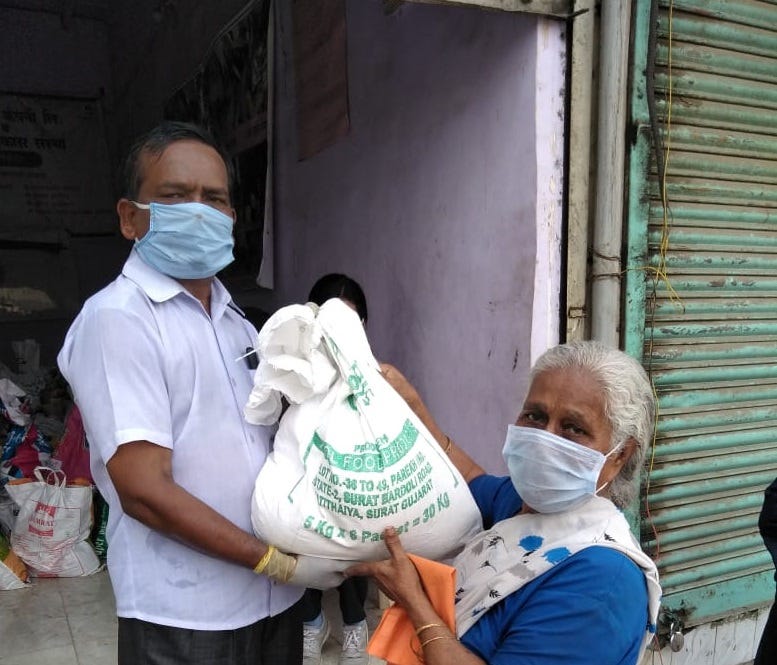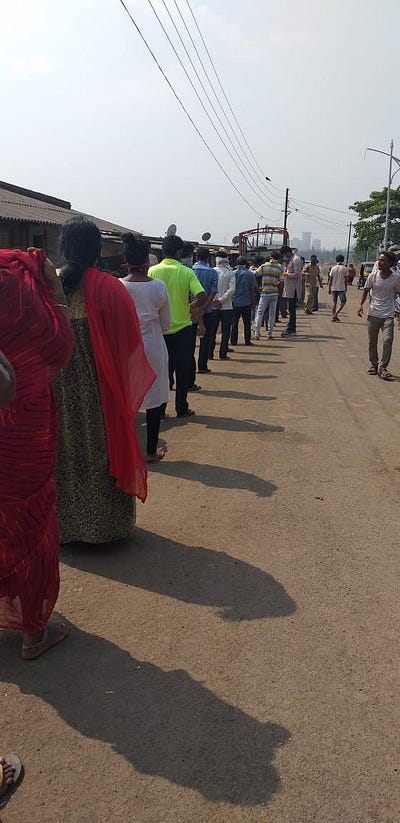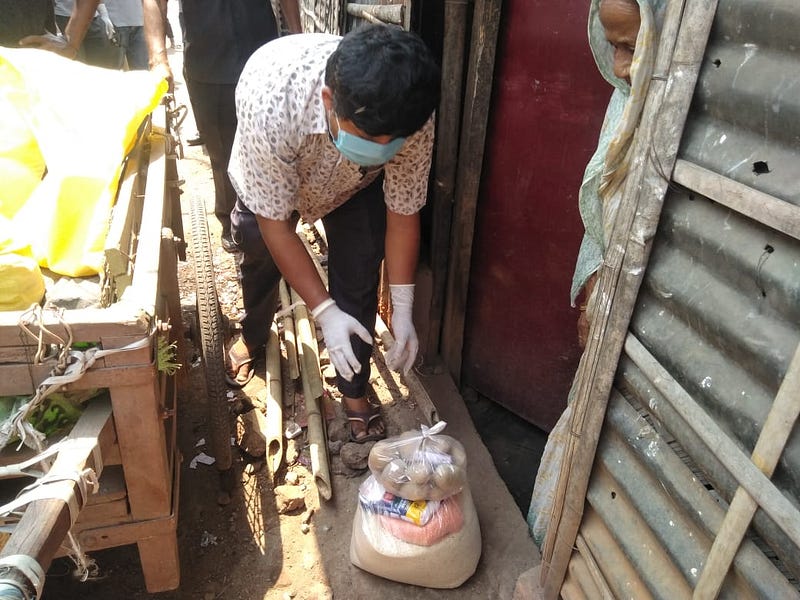An update on COVID-19 emergency relief efforts


Vulnerabilities Grow
As India enters Day 9 of the 21-day lockdown period announced by Prime Minister Narendra Modi, covering just a little over the first one-third phase, the challenges facing us today are much bigger than the health consequences of the COVID-19 pandemic. The sudden decision, without the announcement of any social protection provisions for India’s poor has caused the impoverishment of lakhs of daily-wage earners. Overnight, this section of the working population (estimated to be as much as 90 per cent of the country’s workforce) has been rendered without work, without money to procure food, and completely helpless. Visuals of thousands of people congregating at travel terminals in the hopes of making it back to their villages, queueing up from morning to night just to get one free meal, or even trying to attempt an unimaginable journey of walking hundreds of kilometres home have flooded our media channels, and this migration has even been termed possibly the largest on foot since the country’s partition. Government initiatives (both at the centre and state) were announced soon after, but many are yet to be implemented, and there is lack of clarity about how others will be made available and accessible to the people, without triggering further panic and chaos.
Our efforts
In the wake of the growing COVID-19 crisis, Youth for Unity and Voluntary Action (YUVA) has tried to address basic needs of the urban poor within communities we work with across 4 cities in the Mumbai Metropolitan Region— Vasai Virar, Mumbai, Navi Mumbai and Panvel — starting with the most vulnerable families first, through the provision of weekly rations. Please read about our efforts on this front here: #1, #2, #4, #5, #6, #7, #8.
Given the evolving nature of the situation, and growing needs and demands of the people, here is how the initiative has unfolded:
- Over 2 weeks (since 20 March 2020), relief efforts under #TogetherWeCan have reached atleast 16,895 people! We were able to provide week-long food supplies to 3,379 urban poor households with 390 of these households identified and distributed by partners Aajeevika Bureau, Save the Children India, Curry Stone Foundation and Jeevan Bachao Andolan, Mahul. Some of the areas we have reached out to include homeless pockets in Kurla, Sion, Dadar, Matunga, Jogeshwari ,etc. and slum settlements and resettlement colonies in Mankhurd, Bandra, Malad, Nallasopara, Navi Mumbai, etc. and migrant workers in different parts of the Mumbai Metropolitan Region.
- We’ve also partnered on #SpreadLoveNotCorona to offer cooked lunch to frontline workers — the Mumbai Police (22,000 so far) and staff in 16 government hospitals.
- Alongside relief efforts, we have also been taking forward advocacy demands with the government, at the municipal, state and central level. We are looking to further strengthen these efforts towards the welfare of informal workers and marginalised communities.
- Given the nature of the crisis we have been receiving appeals for help from migrant workers across the Mumbai Metropolitan Region and a few from even those who were trying to make their way home during the lockdown. We are trying our best to connect them to other organisations and networks that can offer support as well as state helpline numbers. Any readers who have further leads to share, please add a comment to the blog or reach out to us on our social media handles: Twitter, Facebook and Instagram.
- YUVA has been advocating for the right to shelter for the homeless and in the preceding days we have shared our demands with the Municipal Commissioner. Many of the homeless are being shifted to BMC-run schools and other temporary shelters by the Municipal Corporation of Greater Mumbai. We supported one such effort to shift 15 homeless people living in the F/North ward to the Toy Library, Antop Hill. We are advocating that shelters for homeless be made available even after the lockdown.
- Our teams in other cities are also engaged in relief efforts and working with local partners towards this.

In Nashik, food distribution drives took place and Anubhav Shiksha Kendra youth collective members have led some of these efforts too, aimed at supporting the homeless, daily-wage labour, destitute women and children. In Nagpur, we hope to support the Nagpur Municipal Corporation in their ration distribution efforts in various informal settlements. In Bhopal, our staff have been supporting ongoing relief efforts in the city in partnership with Muskaan. In Guwahati, a food distribution drive took place in the Bhutnath area with the support of Patadik Nari Samaaj (a women’s collective) and SPU personnel, Assam police. We have been able to provide 60 families basic food provisions. We are also trying to extend these efforts to other areas and are actively pushing for government implementation of relief measures.
The Week Ahead
Given the ongoing nature of the crisis and the need for long-term relief measures, this is how we propose to take forward the initiatives.
- Our fundraising initiatives continue on Milaap m-lp.co/yuva1 and Ketto https://bit.ly/SpreadLoveNotCorona and we will continue to use this support on the following initiatives (check the next 2 points).
- Given that weekly ration supplies to vulnerable families are soon depleting, we are reaching out to them with a monthly quota of rations containing rice, wheat, pulses, cooking oil, salt, soap, etc. The cost of each supply kit is approximately Rs. 2,000.
- Given the needs of the police and government hospital staff at this time, we are going to continue providing them a mix of dal, rice, roti and sabzi meal boxes.
- We are continuing advocacy efforts with the government, at the municipal, state and central level, to demand better welfare and protection of vulnerable groups.
- We are in touch with government representatives and other non-profits to ensure that relief overlaps are minimised. For now we are continuing with relief efforts as mentioned, as most government initiatives are only being rolled out in phases and will be operational from early-mid April.
- Many migrant workers in the city are not covered under government initiatives and do not have portable welfare documents (such as ration cards or worker registration documents). For them access to basic supplies will remain a huge challenge and we will try to provide support to such groups.
A Note of Thanks
The work that we have been undertaking, both emergency relief and advocacy efforts, have been strengthened with the support of numerous individuals, networks and organisations. We would like to thank each one of them. We are also in regular touch with the authorities, and thank them for the support we have received, and hope to do more together. We are committed to furthering our work in the coming weeks.


